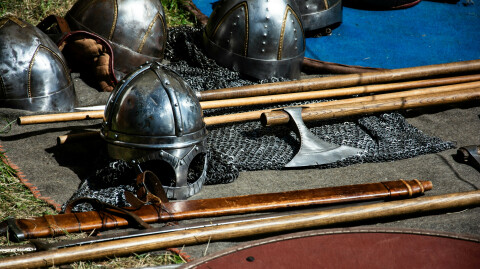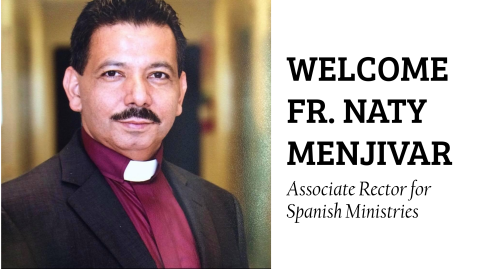There are books I use for reference, others I keep for mental breaks between tasks, and yet others I keep on my desk for spiritual and emotional support. The first group of books are mostly academic, and they are very useful when preparing a class, working on a sermon, or writing an article. The second group are palate cleansers, mostly poetry or literature. I am always reading or re-reading some novel or poetry book, a few pages, or a chapter at a time, until I finish it and return it to a shelf. The third group are daily companions. Most of them are short books by favorite authors and I have read them several times. Well thumbed and well loved, I incorporate small sections of these works into my morning prayer, or I read a few pages during the day when I want to re-orient my thoughts to something with depth and significance. These books always make me think, sigh, imagine, and sometimes tear-up. Below are three of these guides that work for me. They may or may not work for you but knowing a little about them may allow you to get to know me a bit better.
Henry Wadsworth Longfellow’s (1807-1882) Selected Poems has been on my desk for years. I love these simple rhymes and there are times I read the same poem for weeks and even months until I move on to the next. Lately, I seem to be stuck (a good thing) on The Ladder of Saint Augustine. This 1851 poem has incredible resonance to our very day. Here are several verses. Let me know what you think:
Saint Augustine! Well has thou said,
That of our vices we can frame
A ladder, if we will but tread
Beneath our feet each deed of shame
All common things, each day’s events,
That with the hour begin and end,
Our pleasures and our discontents,
Are rounds by which we may ascend.
Then after nine incredible verses about our pleasures and discontents, Longfellow ends with the following verse, one of my favorites of the poem:
Nor deem the irrevocable Past,
As wholly wasted, wholly vain,
If, rising on its wrecks, at last
To something nobler we attain.
My next choice is the best book I never paid a penny for. In October of 2017,I took a group of parishioners to a program at Tulane University in New Orleans. The event was part of Richard Rohr’s Conspire Conferences. All the speakers were phenomenal and Fr. Rohr’s talk was life-changing for some of us. In between breaks, I walked to the vendor stalls and purchased four or five of Rohr’s books, which I have been slowly reading for the last two years. When the conference ended, an usher at the door passed me a copy of a pocket-seize book named Just This by Father Richard Rohr. This small jewel has been a favorite and I highly recommend it. Below is a taste of one of the meditations:
“The spiritual journey is a constant interplay between moments of awe followed by a general process of surrender to that moment. We must first allow ourselves to be captured by the goodness, truth, or beauty of something beyond and outside ourselves. Then we universalize from that moment to the goodness, truth, and beauty of the rest of reality, until our realization eventually ricochets back to include ourselves! This is the great inner dialogue we call prayer.”
I have a complicated relationship with the next author. I have been deeply affected by his writings and, as an author, he will always have a fan in me. I do not agree with everything he writes, but even when I disagree, I must take him seriously. He writes with such honesty and relatability that he is both soothing and convicting at the very same time. He makes me laugh, cry, and pull my hair out in exasperation. Yet, he was one of my early entrance points into Evangelicalism, and I am deeply grateful he never made the journey into the far Christian right. He once told me he did not see why Hispanics gravitated to the Episcopal Church and suggested that I might be happier in the Pentecostal church. Even though we both had a fascination for Stephen King and B movies, I always resented the implication that perhaps I was at the wrong place and I had given up my cushy life to chase an impossible dream. He was the Dean of my seminary and he was both an excellent professor and a complicated, almost unlikable person. Below is a small passage of one of Paul Zahl’s earliest books. Who Will Deliver Us? was printed in England in 1983, but it remains one of my favorite works on the Atonement. I highly recommend it. Please read below for a small passage from this obscure and little-known book:
“We are in a place of tragic solitude. We have identified the fear of judgment as the tragedy beyond all tragedies. Strategies have occurred to us for facing this tragedy: strategies of escape, strategies of open resistance, and strategies of appeasement. We have observed the disappointment inherent in each of them. Not one of them is able to succeed in resolving the problem… The atonement of Jesus Christ displays God sharing our sorrow… We do in fact see through a glass darkly. But we place the cross at the top of our spires to declare that our unendurable pain is not forgotten.”
How about you? What are you reading lately? Are these books helping you connect with that soft voice in your heart? Remember that this voice is always there because love keeps God there.
May God continue to bless you.
Fr. Roman+





